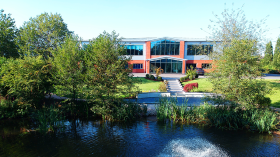In the heart of the UK's payment landscape stands allpay Limited, a pioneering force led by the visionary founder and entrepreneur, Tony Ki
Latest Supplier News
Borg & Overström is a UK manufacturer of premium drinking water solutions. For over 20 years Borg & Overström has developed sustainable, bottle-less, hygienic, drinking water dispensers with the aim to provide exceptional, safe, self-service drinking water into schools, universities, workplaces and communal spaces.

 Childhood obesity and physical inactivity are rising and young people’s relationship with the outdoor world is dwindling. Despite children having an abundance of natural energy, it is adults that may be stopping them from being as active as they could be. Evidence shows that adopting an active lifestyle early in life encourages healthy habits in adulthood which means providing children with the time, space and facilities to enable that natural energy.
Childhood obesity and physical inactivity are rising and young people’s relationship with the outdoor world is dwindling. Despite children having an abundance of natural energy, it is adults that may be stopping them from being as active as they could be. Evidence shows that adopting an active lifestyle early in life encourages healthy habits in adulthood which means providing children with the time, space and facilities to enable that natural energy. 








